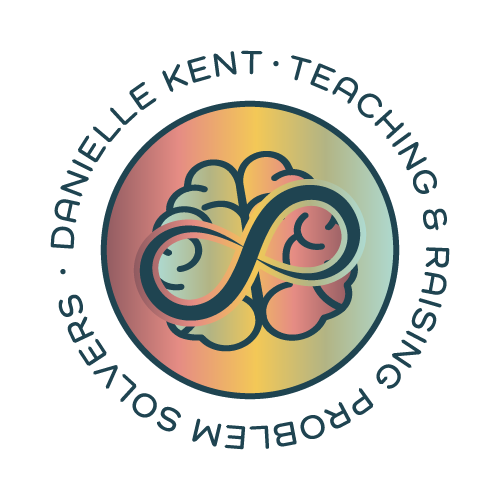Episode 30: The way out is through – a January reflection
Hello, everyone! Welcome to the last Monday of January!
I have to celebrate a little bit because I mentioned in one of the previous episodes that one of my big goals was to work on my own self-accountability, this podcast being one of those things that I was really wanting to be more consistent with. I was feeling like I wasn’t showing up, and that’s a self-regulation skill–being accountable to yourself and being able to follow through on goals. To me this is self-accountability, because nobody was really there over me, saying “you need to do this by x, y, z date.”
This is me – this is me practicing being accountable to me, and so I want to celebrate with you, and share with you that I run my own business, I run a family, I co-run another business, but being accountable to running me, following through with me is something I’m still working on. So I hope that provides some support for you and whatever you’re working on– a reminder that we all are working on something. We all are developing skills with something, and self-regulation is an ongoing journey.
I don’t think we’re ever “there.” In different seasons of our life, in different phases of our life, we are going to need to develop different or varied self-regulations skills to accomplish whatever the goals of that season call us to do. In particular, being accountable to yourself, being self-responsible, being able to prioritize yourself is something that our society does not always value, especially for women.
So when I think about this month, I’ve talked about self-regulation from an external perspective, with some sprinkles throughout about my own self-regulation journey. I want you to also be thinking about self-regulation from that goal-directed perspective, and recognizing that that stress response is part of the self-regulation journey. Being able to manage our emotional and energy level, and our thoughts, when we encounter a stress cycle is really important. It’s absolutely important. It’s the heart of problem-solving.
There are moments when we are just planning and actively reflecting and setting out parts of our life for mini-goals where we are using those self-regulation skills as well. What I see us really benefiting from doing as adults is making sure that when we are making goals for ourselves, we are considering the likely stressful events that will happen in life.
We’ve talked this month about how stress occurs when demand outweighs capacity; how a little bit of stress is good but a lot of stress is what often makes things challenging; that being aware of our own stress levels, being aware of our own thoughts and feelings is important, but also doing so without judgment, because a lot of our immediate stress responses are auto-pilot responses we have based on how adults responded to us when we were younger. We’ve talked about removing judgment and becoming aware.
I hope this gets you excited. I hope it gets you excited thinking about our self-regulation journeys as adults. That’s what this month was all about – our journeys as adults. Next month I’ll probably circle back to more quotes specifically about kids’ development of self-regulation skills, but I hope you’ll come back to listen to the episodes of this month again at some point. I encourage you to listen to the quotes, to get the books that I’ve been talking about, to think about your thoughts and energy and emotional states during both enjoyable and stressful experiences. I hope that you start to take stock of all of this in a non-judgmental way, because as I mentioned in episodes 22 and 23, I think how we turn, or continue to turn, the ship around, is by our own self-regulation journey. It’s by us leading the way and showing kids what self-regulation is all about.
So please, if you take nothing away from this month, I want you to take away that our developing self-regulation skills, and creating systems where adults are prioritizing and learning about their own self-regulation–this is the way forward. As I said in episode 23, I don’t think this is going to be easy or simple. In fact, I think it’s going to be hard AF. But we either pay now or pay later on turning the ship on behaviors for our kids, and if we don’t start paying now, our kids–the kids that you and I care about so much– will have overwhelming taxes to pay in the future.
We can make a difference. It starts with us, the adults.
All right, everybody. Thank you so much for tuning into another episode of the Teaching and Raising Problem Solvers podcast, and thank you for being here with me this month.
If you just happened to tune into this episode, make sure you go back and listen to all of January’s episodes. They’re full of quotes and points for reflection.
I will see you again later this week for our first episode of February.
